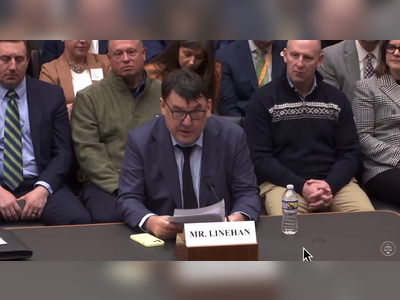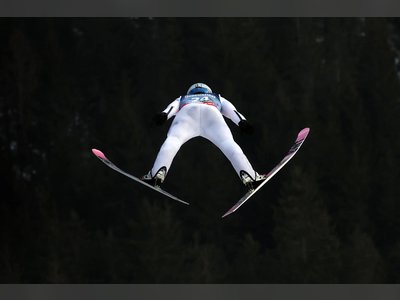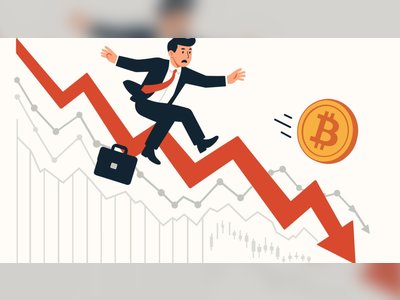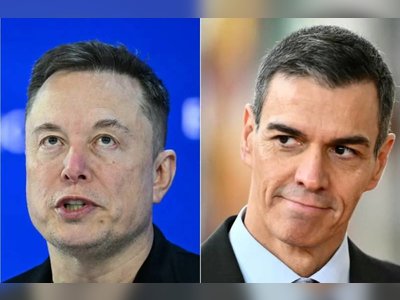
The Economic Case for Investing in Disadvantaged Children in Hungary
A study suggests substantial GDP growth if the state supports education and career development for impoverished children.
A recent study has illuminated the potential economic benefits Hungary could realize by investing in the development of its disadvantaged youth.
Bódis Kriszta, founder of the Van Helyed Foundation, presented findings in a November edition of the 'Most jövök' program, asserting that the Hungarian economy could see up to a ten-fold return on government investment made in underprivileged children.
The study, conducted by a team of economists and consultants backed by Gauder Milán, former global vice president of Mastercard, outlines an investment model where, over 15 to 20 years, each child sponsored by the state would potentially contribute 280 to 300 million forints to the nation's GDP. This suggests a significant return on investment, indicating that funding for at-risk children could not only address social inequalities but could also stimulate economic growth.
Integrating the Van Helyed methodology into state provisions could, according to the organization, yield a measurable impact, potentially raising Hungary's GDP by 3% over the long term.
The proposed annual expenditure by the state—between 20 to 25 million forints per child until they enter the workforce—would be a substantial but manageable component of the national budget, potentially bringing considerable economic benefits.
The study further details the process of deriving these figures, drawing parallels with international programs such as the World Food Programme (WFP), which demonstrated that improved school nutrition significantly increases school attendance and regional economic output in countries like Sri Lanka, Cameroon, and Bhutan.
The Van Helyed report aims to simulate similar outcomes in Hungary by ensuring children from marginalized communities complete their education and transition successfully into the workforce.
Gauder's experience with the WFP underlines how school-based programs increase educational attainment and economic output in post-conflict or disaster regions.
Translated into the Hungarian context, the Van Helyed project indicates potential for large-scale socioeconomic upliftment, challenging the notion of social programs as a financial abyss with little return.
Currently operating in the disadvantaged Ózd region, the Van Helyed Foundation supports 150 children, ensuring high school completion and further education at rates unmatched by peers outside the program.
Bódis argues for scaling this model nationally, targeting Hungary’s poorest 150,000 children.
With annual costs per child at around 1 to 1.5 million forints—a level at which current successes are achieved—the state could integrate this approach without destabilizing the budget.
The broader implications are profound.
Gauder estimates that, depending on education level, Van Helyed participants could contribute an annual GDP increase of 3 to 3.3 million forints more than their less-educated peers, creating a recurring boost to the economy.
The program's potential to save on social welfare, improve workforce quality, and reduce health care burdens furthers its attractiveness as an economic policy.
Ultimately, deploying this program on a national scale could encourage high-value job creation, decrease reliance on foreign labor, and improve Hungary's competitive position globally.
While Gauder emphasizes the long-term nature of returns, the program could ultimately lead to a more balanced economy and a more equitable society, offering Hungary a model for integrating social investments with economic policy.
The results of this project underscore the potential benefits of reducing education and opportunity gaps, urging policymakers to consider comprehensive education reform and social investment as keys to economic resilience and growth.
Bódis Kriszta, founder of the Van Helyed Foundation, presented findings in a November edition of the 'Most jövök' program, asserting that the Hungarian economy could see up to a ten-fold return on government investment made in underprivileged children.
The study, conducted by a team of economists and consultants backed by Gauder Milán, former global vice president of Mastercard, outlines an investment model where, over 15 to 20 years, each child sponsored by the state would potentially contribute 280 to 300 million forints to the nation's GDP. This suggests a significant return on investment, indicating that funding for at-risk children could not only address social inequalities but could also stimulate economic growth.
Integrating the Van Helyed methodology into state provisions could, according to the organization, yield a measurable impact, potentially raising Hungary's GDP by 3% over the long term.
The proposed annual expenditure by the state—between 20 to 25 million forints per child until they enter the workforce—would be a substantial but manageable component of the national budget, potentially bringing considerable economic benefits.
The study further details the process of deriving these figures, drawing parallels with international programs such as the World Food Programme (WFP), which demonstrated that improved school nutrition significantly increases school attendance and regional economic output in countries like Sri Lanka, Cameroon, and Bhutan.
The Van Helyed report aims to simulate similar outcomes in Hungary by ensuring children from marginalized communities complete their education and transition successfully into the workforce.
Gauder's experience with the WFP underlines how school-based programs increase educational attainment and economic output in post-conflict or disaster regions.
Translated into the Hungarian context, the Van Helyed project indicates potential for large-scale socioeconomic upliftment, challenging the notion of social programs as a financial abyss with little return.
Currently operating in the disadvantaged Ózd region, the Van Helyed Foundation supports 150 children, ensuring high school completion and further education at rates unmatched by peers outside the program.
Bódis argues for scaling this model nationally, targeting Hungary’s poorest 150,000 children.
With annual costs per child at around 1 to 1.5 million forints—a level at which current successes are achieved—the state could integrate this approach without destabilizing the budget.
The broader implications are profound.
Gauder estimates that, depending on education level, Van Helyed participants could contribute an annual GDP increase of 3 to 3.3 million forints more than their less-educated peers, creating a recurring boost to the economy.
The program's potential to save on social welfare, improve workforce quality, and reduce health care burdens furthers its attractiveness as an economic policy.
Ultimately, deploying this program on a national scale could encourage high-value job creation, decrease reliance on foreign labor, and improve Hungary's competitive position globally.
While Gauder emphasizes the long-term nature of returns, the program could ultimately lead to a more balanced economy and a more equitable society, offering Hungary a model for integrating social investments with economic policy.
The results of this project underscore the potential benefits of reducing education and opportunity gaps, urging policymakers to consider comprehensive education reform and social investment as keys to economic resilience and growth.
AI Disclaimer: An advanced artificial intelligence (AI) system generated the content of this page on its own. This innovative technology conducts extensive research from a variety of reliable sources, performs rigorous fact-checking and verification, cleans up and balances biased or manipulated content, and presents a minimal factual summary that is just enough yet essential for you to function as an informed and educated citizen. Please keep in mind, however, that this system is an evolving technology, and as a result, the article may contain accidental inaccuracies or errors. We urge you to help us improve our site by reporting any inaccuracies you find using the "Contact Us" link at the bottom of this page. Your helpful feedback helps us improve our system and deliver more precise content. When you find an article of interest here, please look for the full and extensive coverage of this topic in traditional news sources, as they are written by professional journalists that we try to support, not replace. We appreciate your understanding and assistance.











